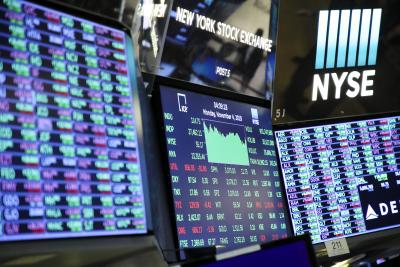All-time Low In Global Growth Optimism, Finds Survey

New York, June 18: The US stock market has officially entered a bear market as the June BofA Fund Manager Survey (FMS) signals deeper investor misery.
The survey finds that inflation will nonetheless remain high relative to history so by far and away the most popular description of what the economic backdrop will be in the next 12 months is “stagflation”, 83 per cent (up from 77 per cent), highest level since June 2008.
The #US stock market has officially entered a bear market as the June BofA Fund Manager Survey signals deeper investor misery.
Optimism on global growth has fallen to a new low. Net percentage of FMS investors expecting a stronger economy fell to minus 73%, lowest since 1994. pic.twitter.com/pBzsGBWEC0
— IANS (@ians_india) June 18, 2022
The survey shows all time low in global growth optimism (net minus 73 per cent), stagflation fear highest since June 2008, profit outlook worse since September 2008 (Lehman), CIOs telling CEOs to play safe (44 per cent want stronger balance sheets vs 30 per cent desire for capex and 18 per cent for buybacks).
Optimism on global growth has fallen to a new low. Net percentage of FMS investors expecting a stronger economy fell to minus 73 per cent, lowest since 1994.
Investors now seem convinced inflation will be lower in the next year, more investors than at any time since GFC/Lehman expect inflation rates to decline.
As per the BofA survey, global profit expectations fell to net minus 72 per cent (from 66 per cent), the weakest since September 2008. The survey notes that the big lows in global profit expectations all occurred at other Wall St crisis moments (LTCM, Dotcom bubble burst, Lehman bankruptcy and Covid).
Investors are now telling companies to “play it safe”. Investors want companies to strengthen their balance sheets (at 44 per cent up from 41 per cent, highest since January 2021) rather than increase spending on capex or return cash to shareholders via buybacks.
Relative to the past 10 years investors are long cash, commodities, and healthcare and are very underweight equities, tech, the Eurozone, and EM.






